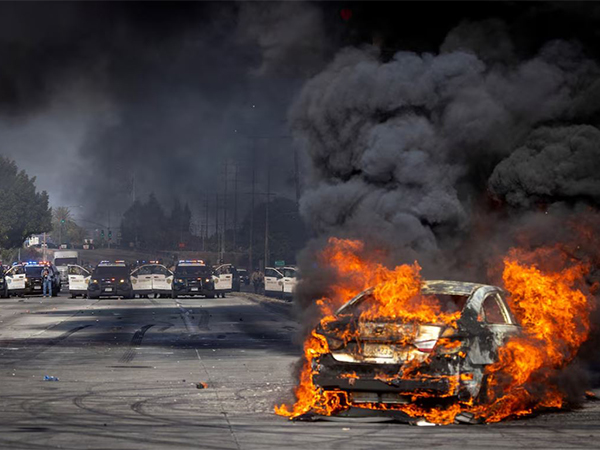Trump's Unprecedented Move: National Guard Deployed to LA Amid Immigration Protests
President Trump ordered 2,000 National Guard troops to Los Angeles to control immigration protests, bypassing California Governor Newsom's consent. This rare invocation marks a significant escalation after federal raids. The move faced criticism for potentially inciting violence and undermining public trust, sparking debates on federal vs. state authority.

- Country:
- United States
In a controversial decision, President Donald Trump has authorized the deployment of 2,000 National Guard troops to Los Angeles to manage immigration protests. This move overrides California Governor Gavin Newsom's objections and is viewed as a rare and significant use of presidential power.
The deployment follows widespread protests triggered by federal immigration raids, which resulted in at least 44 arrests. Law enforcement's use of tear gas and flashbang grenades over the weekend has further fueled tensions. Trump criticized local authorities' handling of the unrest, advocating for federal intervention on social media to address the situation.
This development marks the first instance since 1992 that a U.S. president has federalized National Guard troops, this time without the governor's consent. Critics, including the League of United Latin American Citizens and Democratic Representative Nanette Barragan, have condemned the decision as inflammatory, warning it could exacerbate tension.
Protesters have blocked major Los Angeles freeways and streets, disrupting city traffic, prompting police action to deem the gathering illegal. Experts cited by CNN highlight the lack of modern precedent for such presidential deployment without state request, reminiscent of President Lyndon B. Johnson's 1965 action to protect civil rights demonstrators.
Juliette Kayyem, a senior national security analyst, criticized the deployment as an overreaction. Concerns of potential escalation of violence are prevalent, particularly given the National Guard's training in force rather than de-escalation. Meanwhile, discussions continue on the legality and implications of this federal intervention.
With escalating disagreements between President Trump and Governor Newsom, this latest action has sparked concern over federal-state relations. Human rights organizations, such as Amnesty International, have condemned the move as targeting human rights defenders and attempting to crush dissent, deeming it a 'dangerous' path.
(With inputs from agencies.)










